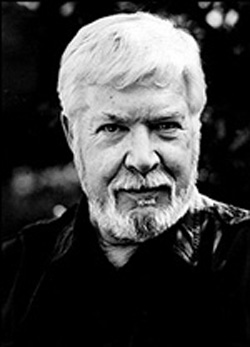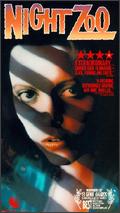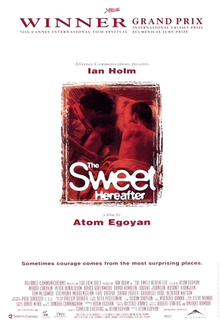Related Research Articles

Timothy Irving Frederick Findley was a Canadian novelist and playwright. He was also informally known by the nickname Tiff or Tiffy, an acronym of his initials.

Catherine Anne O'Hara is a Canadian and American actress. She is known for her comedy work on Second City Television (1976–1984) and Schitt's Creek (2015–2020) and in films such as After Hours (1985), Beetlejuice (1988), The Nightmare Before Christmas (1993), and the first two installments of the Home Alone franchise: Home Alone (1990) and Home Alone 2: Lost in New York (1992). Her other film appearances include the mockumentary films written and directed by Christopher Guest: Waiting for Guffman (1996), Best in Show (2000), A Mighty Wind (2003), and For Your Consideration (2006).

Jesus of Montreal is a 1989 Canadian comedy drama film written and directed by Denys Arcand, and starring Lothaire Bluteau, Catherine Wilkening and Johanne-Marie Tremblay. The film tells the story of a group of actors in Montreal who perform a Passion play in a Quebec church, combining religious belief with unconventional theories on a historical Jesus. As the church turns against the main actor and author of the play, his life increasingly mirrors the story of Jesus, and the film adapts numerous stories from the New Testament.

Gordon Edward Pinsent was a Canadian actor, writer, director, and singer. He was known for his roles in numerous productions, including Away from Her, The Rowdyman, John and the Missus, A Gift to Last, Due South, The Red Green Show, and Quentin Durgens, M.P. He was the voice of King Babar in the Babar the Elephant television and film productions from 1989 to 2015.
The ACTRA Awards were first presented in 1972 to celebrate excellence in Canada's television and radio industries. Organized and presented by the Association of Canadian Television and Radio Artists, which represented performers, writers and broadcast journalists, the Nellie statuettes were presented annually until 1986. They were the primary national television award in Canada until 1986, when they were taken over by the Academy of Canadian Cinema and Television to create the new Gemini Awards, although ACTRA continued to present Nellies in radio categories.
The Earle Grey Award is the lifetime achievement award for television acting of the Canadian Screen Awards, and its predecessor the Gemini Awards. It can be presented to an individual or collaborative team, and may be presented posthumously.

Goin' Down the Road is a 1970 Canadian drama film directed by Donald Shebib, co-written by William Fruet and Donald Shebib. It tells the story of two young men who decide to leave the Maritimes, where jobs and fulfilling lives are hard to find, for the excitement and perceived riches of Toronto. It stars Doug McGrath, Paul Bradley, Jayne Eastwood and Cayle Chernin. Despite the small production budget, the movie is generally regarded as one of the best and most influential Canadian films of all time and has received considerable critical acclaim for its writing, directing and acting.

Frank Radford "Budge" Crawley, was a Canadian film producer, cinematographer and director. Along with his wife Judith Crawley, he co-founded the production company Crawley Films in 1939.
The Alliance of Canadian Cinema, Television and Radio Artists (ACTRA) is a Canadian trade union representing performers in English-language media. It has over 30,000 members working in film, television, radio, and all other recorded media. The organization negotiates, safeguards, and promotes the professional rights of its members. It also works to increase work opportunities for its members and lobbies for policy changes at the municipal, provincial, and federal levels.
The John Drainie Award was an award given to an individual who has made a significant contribution to broadcasting in Canada. Although meant to be presented annually, there have been years where it was not presented.

Nobody Waved Good-bye is a 1964 National Film Board of Canada production directed by Don Owen, starring Peter Kastner, Julie Biggs and Claude Rae. A sequel, Unfinished Business, was released in 1984.

Thomas "Thom" Fitzgerald is an American-Canadian film and theatre director, screenwriter, playwright and producer.

Night Zoo is a 1987 Canadian film. It is directed and written by Jean-Claude Lauzon. It made its debut at the 1987 Cannes Film Festival. The film was selected as the Canadian entry for the Best Foreign Language Film at the 60th Academy Awards, but was not accepted as a nominee.

The Sweet Hereafter is a 1997 Canadian drama film written and directed by Atom Egoyan, adapted from the 1991 novel by Russell Banks. It tells the story of a school bus accident in a small town that kills 14 children. A class-action lawsuit ensues, proving divisive in the community and becoming tied with personal and family issues. It stars an ensemble cast featuring Ian Holm, Sarah Polley, Maury Chaykin, Bruce Greenwood, Tom McCamus, Gabrielle Rose, Arsinée Khanjian and Alberta Watson.
Lawrence Joseph Zahab, known professionally as Lawrence Dane, was a Canadian actor and film producer. He had an expansive career spanning over 50 years, between 1959 and 2017, during which time he appeared in over 150 film, television, and theatre productions. He was a Genie Award nominee for Best Supporting Actor at the 1st Genie Awards in 1980 for the film Running, and an Earle Grey Award nominee at the 10th ACTRA Awards in 1981 for the television film A Question of the Sixth.
Who Has Seen the Wind is a 1977 Canadian drama film directed by Allan King and written by Patricia Watson. The film is an adaptation of W. O. Mitchell's influential novel Who Has Seen the Wind. It was the first narrative feature film ever directed by King, who was previously known primarily as a documentary filmmaker.
The Loon's Necklace is a 1948 Canadian film, produced and directed by F. R. Crawley. It recounts the Tsimshian legend of how the loon received the distinctive band of white markings on its neck.
The Far Shore is a Canadian drama film, directed by Joyce Wieland and released in 1976. Wieland's first commercial narrative feature film after years of making experimental short films, The Far Shore is a romantic drama which borrows elements from the life and death of painter Tom Thomson.
The 15th ACTRA Awards were presented on April 2, 1986 to honour achievements in Canadian television production in 1985. They were the final ACTRA Awards presented before the responsibility for organizing and presenting Canadian television awards was transferred from ACTRA to the Academy of Canadian Cinema and Television; after this, ACTRA only presented awards in radio categories, until relaunching the ACTRA Awards program in the early 2000s as a series of regional production awards in various Canadian film and television production markets.
References
- ↑ Gerald Pratley, A Century of Canadian Cinema. Lynx Images, 2003. ISBN 1-894073-21-5. p. 185.
- ↑ Melnyk 2004, p. 95.
- ↑ Maria Topalovich, And the Genie Goes To...: Celebrating 50 Years of the Canadian Film Awards. Stoddart Publishing, 2000. ISBN 0-7737-3238-1. pp. 97-100.
- ↑ Les Wedman, "Etrog our Oscar". Vancouver Sun , October 6, 1972.
- ↑ Melnyk 2004, p. 116.
- ↑ "Murray, Pinsent win ACTRA awards". Red Deer Advocate , May 1, 1973.
- ↑ Corcelli, John (August 2005). "Canadian Cinema". Canadian Communications Foundation. Archived from the original on 6 July 2011. Retrieved 7 May 2010.
- ↑ Carole Corbeil, "The stars are coming out for Toronto's film festival". The Globe and Mail , September 6, 1984.